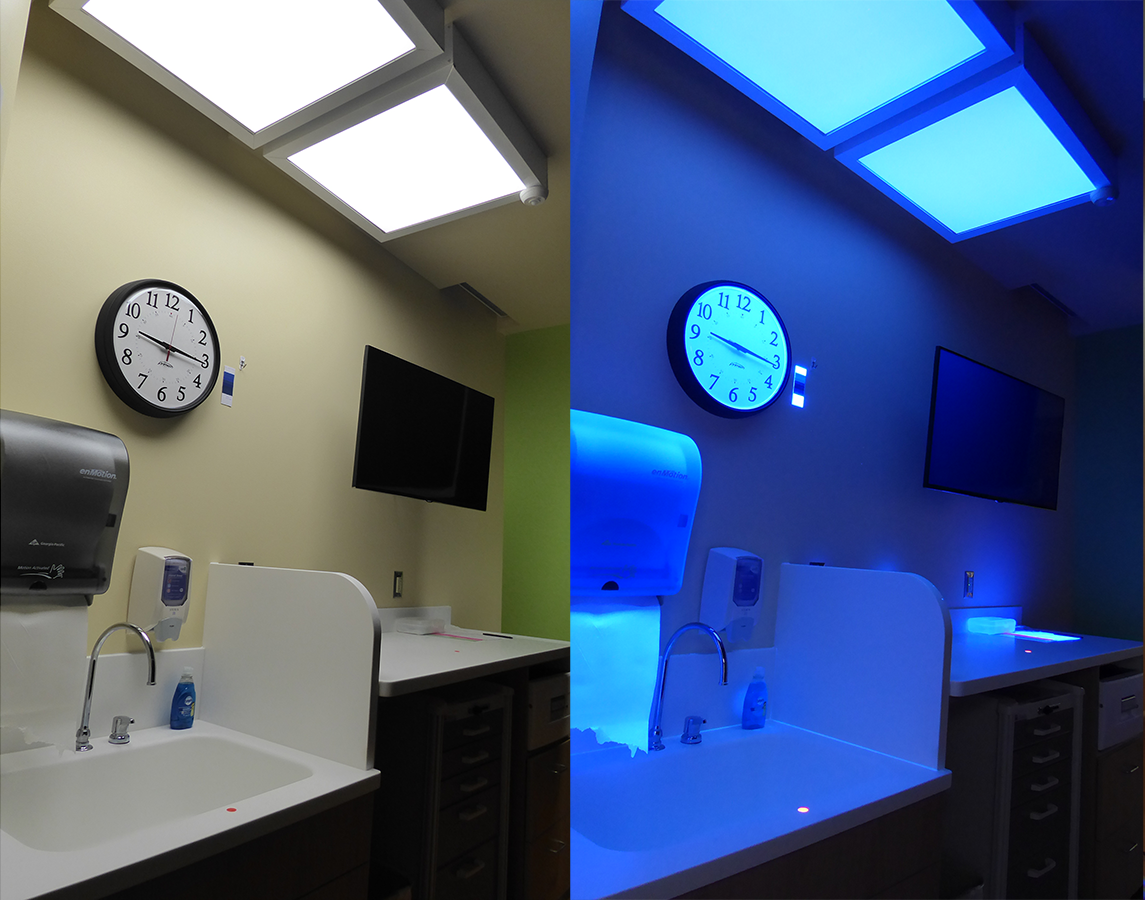As the novel coronavirus, also known as COVID-19, continues to spread across the world, people become more alert to public health issues. Hospitals, where people go seek for health care and treatment, usually gather individual with potential health problem and become a risky environment for others. According to the Centers for Disease Control and Prevention (CDC), in the U.S., approximately 1 in 25 patients contract healthcare-associated infections (HAIs) in hospitals.
Despite that standard cleaning procedures cover manual application of detergents and disinfectants, the efficacy of these cleaning procedures can vary considerably. Given the rather poor effectiveness of manual cleaning, the Lighting Research Center (LRC) at Rensselaer Polytechnic Institute is investigating no-touch methods with a hybrid UV light system which includes short-wavelength light, ranging from ultraviolet (UV) to blue light (200 nm to 410 nm).

(Image: LRC)
Short wavelengths can kill pathogens through a variety of pathways, depending upon the wavelength, the duration, and the amount. The expectation is that decontamination of room surfaces will improve when the human element is removed.
LRC researchers tested a new hybrid lighting system, developed by GE Current, a Daintree company, which was designed to provide both visible white light and disinfecting UV-A. The system was retrofitted into a modern hospital newborn intensive care unit (NICU) at a hospital in Indiana, USA.
The UV-A dosing was set to levels calculated to be safe for human occupation. Eight-hour exposures on counter surfaces were effective for suppressing pathogens identified by the CDC as highly problematic for healthcare facilities. An analysis of photodegrading effects suggested that UV-A resistant equipment and furnishing may need to be installed with this technology. The findings were recently published in Lighting Research & Technology.





 CN
TW
EN
CN
TW
EN






